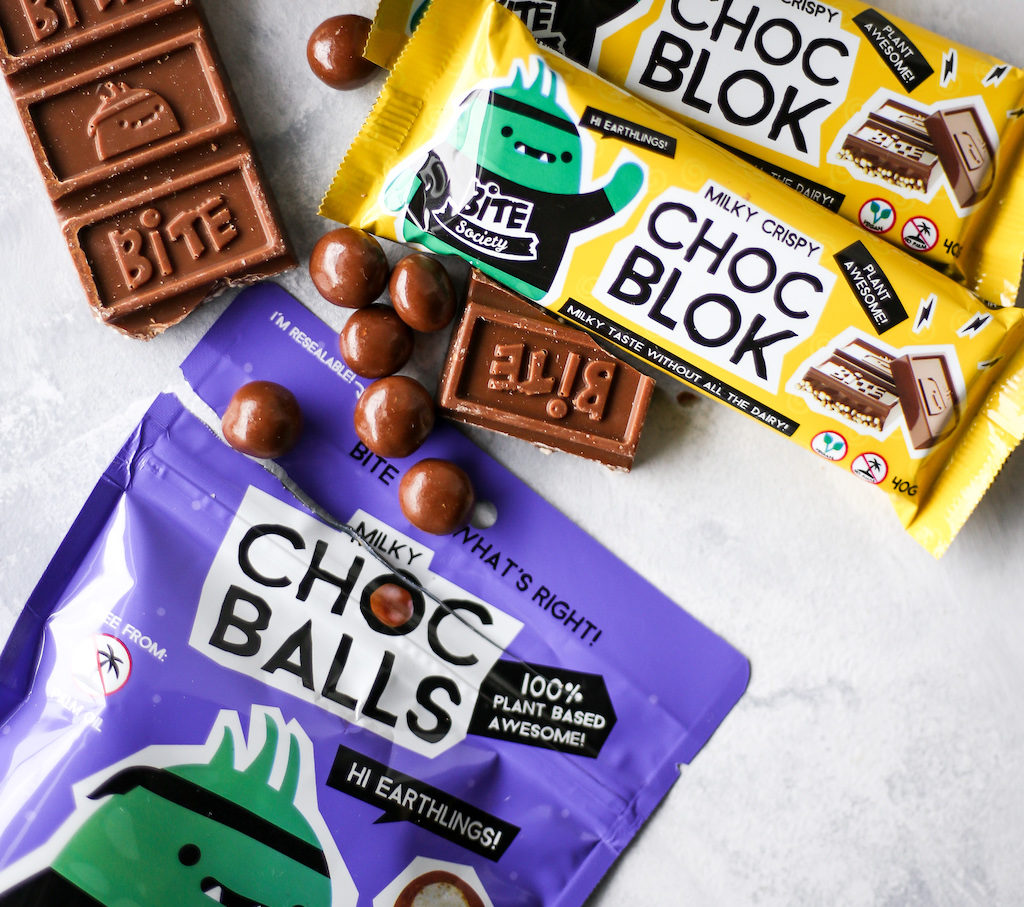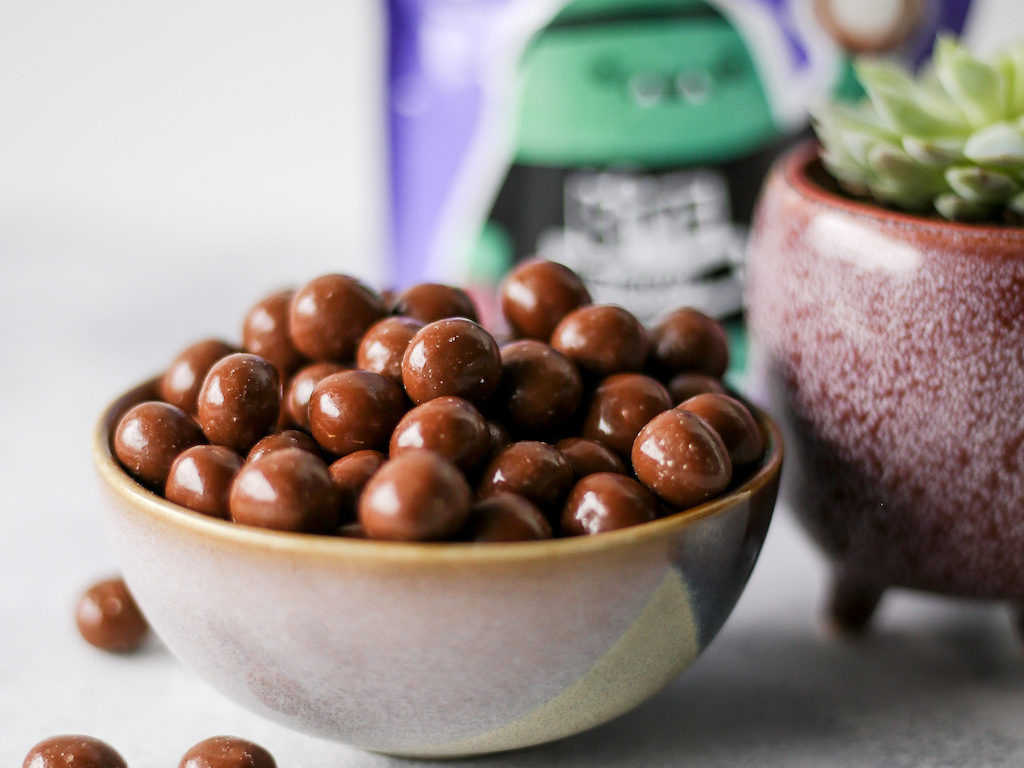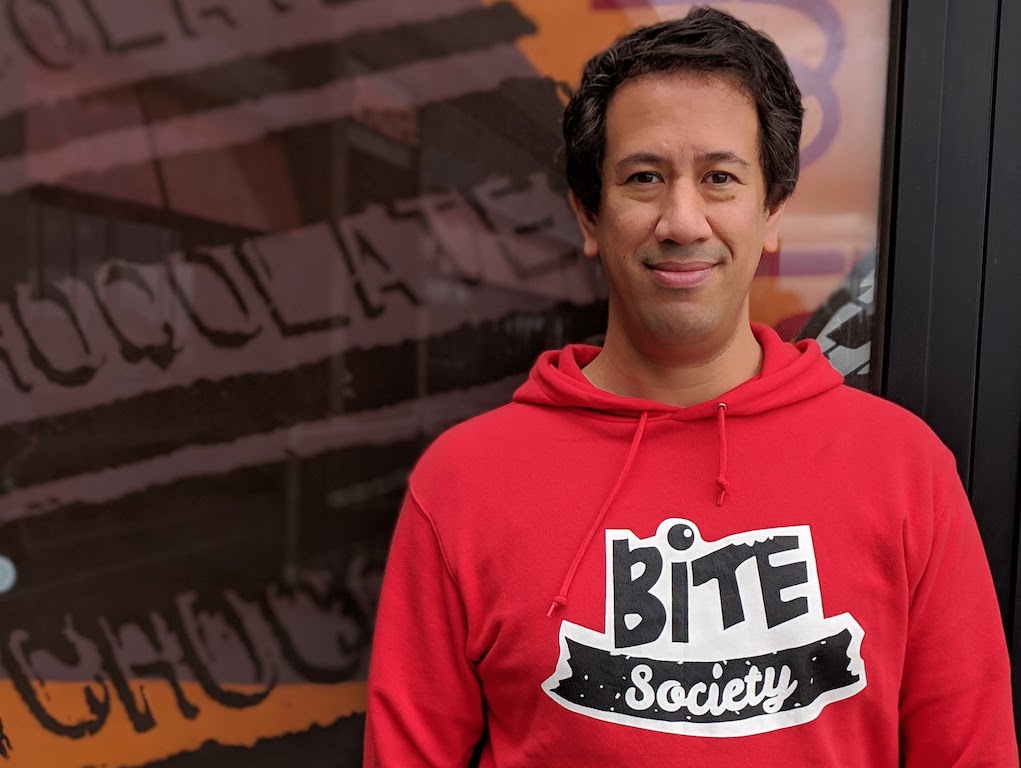6 Mins Read
Can a zero-profit activist vegan chocolate startup intent on price accessibility and uber-transparency convince the masses to change their snacking habits AND rally other would-be vegan entrepreneurs to take the plunge? Bite Society founder Simon Newstead is trying to do just that. He is so committed to sharing every step of his journey publicly that he started a vegan startup podcast, with episodes like The Name Game and Finding A Factory, during which he lays bare his struggles as a first time founder. It’s raw and refreshing, and it’s sure to be an invaluable resource for other food industry founders. Ahead of Bite Society’s Hong Kong launch, we asked Simon to share with Green Queen the most important lessons he learned on his journey so far.
As told to Sonalie Figueiras, Green Queen’s Editor-in-Chief.
Almost exactly one year ago, I was having a chat with my partner Grace about how all the plant-based alternatives seemed to be more expensive than the animal equivalents.
Vegan ice cream, whilst tasty, costs more than dairy. Same for sausages, cheese, seafood and so on. Heck even ordering a dash of oat milk with your coffee instead of dairy, incurs a surcharge.
How strange that the kinder and more climate friendly options (at a time where we’re in a global emergency) are too expensive for mass adoption by the public, the vast majority of whom are not vegan.
That triggered the start of the journey of Bite Society which launched recently in Australia and New Zealand and now into Hong Kong (our vegan milk choc rice balls are on sale in Green Common shops).
In this whirlwind 12 months from idea through to launch there have been hundreds of lessons learned, from small to significant. Here are five of the key takeaways:

1 – You Can Do It!
To put it mildly, there was a lot of self doubt at the start of the project.
How could an engineer who had no background in food, couldn’t cook and had never spent a day working in a restaurant (closest I got was a failed interview at the local McDonalds as a teen) launch a vegan food company?
Despite this, a year later we have sold over 20,000 vegan chocolate units in over 50 retail locations. In my case, that meant a lot of study to learn the basics of food and ingredients, finding a freelance scientist who helped explain things and working together on concepts and formulations after a lot of customer and market research.
Grace and I learned about food manufacturing and started an ultimately successful search for a top quality co-packing partner who could make our products. We then worked with a freelance vegan artist to develop the brand and prepare for launch and marketing. After that, we learned about and locked in warehousing and transport.
The conclusion? You CAN do it. It’s not rocket science. Don’t let modest resources or a lack of a background in a field stop you from getting started on your vegan project.
2 – Product Positioning Matters
One of our launch products is a milky choc ball with a crispy crunchy rice core. It scores well in blind taste tests we’ve conducted, but during the launch phase, some of our retail partners in Australia described it in a way that sounded like it was a vegan version of a melty malt product.
In hindsight, that ended up giving incorrect expectations to many of the first wave of people to try us. We’re now in the process to better educate retail partners and make the crunchy rice part more clear in our product materials, which is working out much better now. If I had a chance to redo the launch I would have done that “product positioning” up front rather than letting it be defined by others. Lesson learned.
3 – Low (Or No) Budgets Encourage Creative Solutions
One of the unique aspects of this project is that it’s being run at cost, as a zero-profit mission. As the goal is to reduce the end customer price, that means we need to cut all the traditional costs out – for example having no advertising budget.
How do you spread the word both to potential stockists, when you have nothing to spend on marketing campaigns? That forced us to brainstorm, which led to “out of the box” ideas like actively soliciting the help of supporters to approach stockists on our behalf and have them help spread the word and convince stockists to give us a shot.
This approach has worked out well so far, with a number of our retail partners approaching us after hearing about the product from their customers, versus a much more expensive and difficult outbound sales process, or raising awareness through ads.

4 – Don’t Sell, Instead Listen And Learn
Going into this industry as an outsider was quite intimidating, so from early days I adopted the mindset that I was here to learn, not “pitch,” That meant trying to listen to the experience of industry folks, seeking out help and not being too proud to admit how little you know about a subject (“no such thing as a dumb question.”)
We’ve learned so much from folks both in the vegan and food community. Even some folks who rejected us early on gave valuable feedback that has helped us improve and get up to speed. In a way it almost felt like going back to uni part time, taking notes while professors were talking and putting that new knowledge to use.
5 – Don’t Be Afraid To Go Your Own Path
We’ve had more than our share of doubters.
Several folks told us it was crazy to be so transparent and share so openly in this project (“what about competitors?!”)
Others said that our wholesale prices were too low and we needed to increase them towards what was the current norm for other vegan products (“you’ll be thought of as a low quality product!”) etc.
Yet at the end of the day, if you have a conviction things should be done differently, don’t be afraid to follow your heart and give it a shot – even if that’s scary and against the grain.
I’d encourage everyone with an itch to create something, whether a project within your existing company or a new vegan startup. Just take the leap and get going. The world needs you! (And I’d love to help.)
Simon Newstead is a tech entrepreneur and founder of Bite Society, a vegan food activism project from Australia that’s launching into Hong Kong, focussed on lowering prices, starting with milky choc balls & bloks. A zero-profit project, the meta goal is to help and inspire other vegan founders & projects, through transparency, blog and its Vegan Startup podcast. Reach Simon via email or @bitesociety on social.
All photos courtesy of Bite Society.




